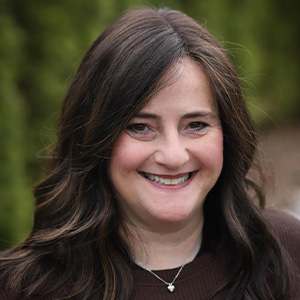Callers Who Won’t Identify Themselves

Forgive my indulgence in sarcasm; this issue really gets my goat

I’m a 21-year-old single girl who often gets reference calls for my friends’ shidduchim. I’m happy to help my friends by giving information. Recently, however, I got a call from a woman who refused to identify herself. I pushed back a little and the woman hung up on me. I had been advised in seminary not to give information if the caller won’t identify herself, but now I’m wondering if I did the right thing. Did I shter something for my friend? Why would people not give their names? And how should that impact my response?
Call Me “Anonymous”
Dear Anonymous,
Ah, the brave warriors who hide behind the shield of anonymity. How can we not be dazzled by their heroism, as they unearth secrets, plumbing the depths of the lives of others, all while hidden by their invisible cloak.
Forgive my indulgence in sarcasm; this issue really gets my goat.
Honestly, I don’t get it. Yes, I understand that it’s easier to remain anonymous when you’re asking personal, probing questions, because the questions reveal as much, or more, about you than the answers reveal about the potential shidduch. And, yes, I understand the desire to protect yourself should you end up saying no.
But you’re asking someone to help you. In what other scenario would it be socially acceptable to ask a favor without even identifying yourself? Particularly when you’re asking the other person for a certain level of vulnerability. You’re, by default, asking the respondent to be honest, when you yourself are not being transparent. You’re asking pointed questions that stab at someone’s privacy, and yet your name is too private to share?
There’s a power differential here that’s being abused. You’re playing on the fear that’s collectively embedded on every shidduch reference’s soul. What if I mess this up for my friend? What if the mother says no because I didn’t just give the information and now it looks like I’m hiding something?
The madness has to stop. This whole shenanigan is part of the greater problem. Let’s stop the games. If the investigation process is going to maintain its original holy purpose, it must be reinfused with some sense of genuine interaction. Asking appropriate questions is both legitimate and important. Being able to give targeted answers is helpful. Playing mind games on either end does nothing to promote healthy beginnings and corrupt this process.
Clearly, I have strong feelings on the matter. I welcome insight from readers about possible justification I may have missed that would help me be dan l’kaf zechus. I can anticipate that there may be extenuating circumstances, such as already-existing relationships between the families, which could turn uncomfortable if one knew that the other said no. Like any situation, we have to judge favorably and assume there might be valid reasons that warrant anonymity. But as a general practice, I find anonymity rude and an imbalance of power.
From a halachic perspective as well, it behooves one to identify themselves. I checked with the Shmiras Halashon Shaila Hotline, and based on my understanding of the answer, you can only reveal negative information when you can ascertain that the information will be used l’toeles. If the caller refuses to identify herself, you wouldn’t be allowed to lie, but you would not be obligated to be as forthcoming as you would be when you know for certain it’s l’toeles. You could more readily say “I don’t know.”
Halachah doesn’t need my endorsement, but it strikes me that human nature is to be more forthcoming with someone who’s transparent and respectful. When people hide behind anonymity, some mistrust is unconsciously aroused in the respondent, and that makes them more guarded.
In a nutshell: It doesn’t seem like a great idea on any level.
So, what do you, friend of the girl, do when you get that call from the masked woman? Is it up to you to be the change you want to see in the world, or do you just deliver the goods and hope you were a good shaliach?
I’m going to need to leave that answer up to you. Only you know how strongly you feel about this issue and why. You’re the best judge of whether you can gracefully navigate an insistence on an identity. Are you be able to swing a nonchalant response that wouldn’t trigger a defensive reaction? Do you have an articulate one-liner regarding why you prefer to only answer when you know whom you’re speaking to? (E.g., “It’s so much easier for me to be forthcoming when I feel like I’m speaking to a real person.”)
I don’t know what you’ll ultimately decide, but I do want to remind you that Hashem runs the world. None of us is that powerful that our phone call will foil Hashem’s plan. Our job is to shine our light in this world — to behave in the most menschlich, middos-based way we know how — and to trust that Hashem has this, in whatever way it unfolds.
Hatzlachah,
Sara
Sara Eisemann, LMSW, ACSW, is a licensed social worker and a columnist for inshidduchim.com. She also lectures on topics related to relationships, personal development, and growth. She welcomes questions, comments, feedback, and interaction at inshidduchim@mishpacha.com.
(Originally featured in Family First, Issue 730)
Oops! We could not locate your form.







